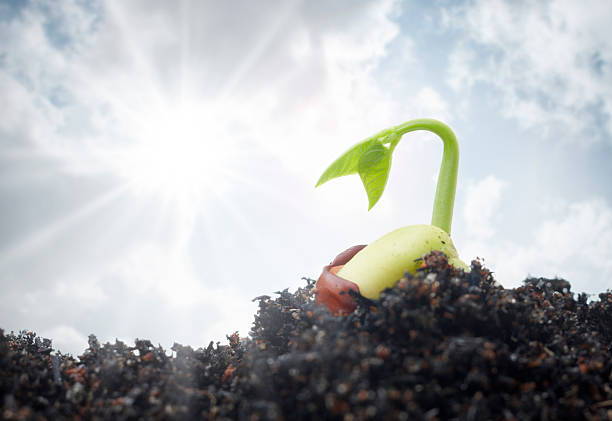Seeds of Opportunity: The African Growth Series
January 2024 | Issue 1
In this week's issue, you will learn more about:
- AFRICA TREND: Is there a solution to South Africa's Loadshedding challenges?
- AFRICA TREND: Start-up Funding
- AFRICA OPPORTUNITY: Private Equity Music Investments
AFRICA TREND: Is there a solution to South Africa's Loadshedding challenges?
The resolution of South Africa's persistent load-shedding predicament does not present itself with an immediate solution. The protracted consequences resulting from mismanagement, inadequate maintenance, deliberate sabotage, and pervasive corruption within Eskom necessitate a prolonged period for rectification. Aside from operational deficiencies across power plants, Eskom's substantial indebtedness and continual leadership restructuring impede the remedial process.
Deliberations are advocating for Eskom to prioritise less investment in expanding renewable capacity, which demands extensive grid infrastructure, and instead allocate more resources to amending and extending the lifespan of the existing coal-powered fleet. However, while this approach might address immediate concerns, the nation must adopt a long-term perspective.
The age of the coal-powered generation infrastructure, averaging over 40 years, necessitates the costly incorporation of emission-capturing technology to comply with globally endorsed standards, surpassing Eskom's current financial capacity. As the era of coal-powered generation wanes, exclusive reliance on a limited range of technologies must be revised. The trajectory leans towards embracing green technology as the future.
While rectifying the supply-side deficiencies requires time, substantial progress has been made in managing the demand side in the recent year. Many households and businesses in South Africa are transitioning to solar rooftop installations to offset their grid dependency. Eskom's data reveals a noteworthy surge in installed solar rooftop PV capacity, demonstrating a growth rate of 349% from March 2022 to June 2023. This surge has allowed Eskom to mitigate load shedding, affording crucial maintenance opportunities for the ailing coal-powered fleet and restoring hydro and diesel storage.
Anticipated growth in solar rooftop installations, buoyed by municipalities implementing feed-in tariffs, particularly Cape Town's initiative for small-scale embedded generation systems (SSEG), is expected to mitigate load shedding further in the upcoming years. Despite the absence of immediate remedies, encouraging developments hint at a more promising future. South Africa's resolve to confront and redress the issues underlying this crisis has spurred positive reforms, attracting increased investments in renewable energy technologies.
As South Africa embraces green technology and fosters energy conservation practices, it stands poised to surmount the persistent loadshedding challenges. Though the journey ahead demands perseverance, the nation's commitment to reshaping its energy landscape portends a resilient and vibrant future, evident in the burgeoning momentum.

AFRICA TREND: Start-up Funding
In 2023, Africa's start-up funding landscape experienced significant investment opportunities. The 'Big Four' of Africa, namely Kenya, Egypt, South Africa and Nigeria, captured 87% of all start-up funding on the continent.
With its consistent growth, South Africa remained the top choice for investors, capturing 97% of the regional funding and growing 8% YoY. Kenya received nearly US$800 million in funding, although it saw a 25% decrease compared to last year. However, Kenya increased its share of the financing in Eastern Africa from 86% to 91%. Egypt claimed the second spot, with 48 start-ups raising US$100,000 or more, even with a milder YoY decline when compared to Kenya and Nigeria's funding decline. Nigeria's total funding plummeted by 67% YoY despite retaining the highest number of start-ups raising US$100,000 or more. Although the 'Big Four' have a strong presence, 29% of start-ups that raised significant funds in 2023 were based in other regions, indicating a growing entrepreneurial scene across the continent.
Overall, African start-ups raised approximately US$2.9 billion in 2023 through deals of US$100,000 or more despite a 39% YoY drop in funding. Due to changes in investor sentiment, global economic slowdowns and uncertainties may have reduced investor appetite for riskier ventures, impacting the funding available for African startups. But many startups shut down but have resurfaced in the wake of 2024, showcasing resilience and adaptability in the face of global economic challenges.

AFRICA OPPORTUNITY: Private Equity Music Investments
Over recent years, the biggest names globally in Private Equity have entered the music industry as a new source of high-returning alternative assets. In 2021, Blackstone, KKR, and Apollo committed to spending over three billion dollars on music catalogues and royalty rights.
The uncorrelated asset may have a major opportunity in Africa, as the industry’s high growth and trend towards formalisation may make African music catalogues much more affordable than in other markets with high growth potential for royalty revenue. The revenue from the music market in Africa was US$31.2 million in 2023. It is projected to have a compound annual growth rate (CAGR) of 12.2% between 2022 and 2027, resulting in a market revenue of US$49.4 million in 2027. Music has many tailwinds in Africa that can keep its value rising, such as increased digitalisation and private music listening. The forces transforming the music industry over the last decade are still shifting the African environment, driven by technological advancements, changing consumer preferences, and the rise of digital platforms. The asset class will become even more attractive as buying, selling, and licensing music rights on the continent becomes easier. Music is a defining part of culture and identity. It has an amazing way of capturing emotions and instilling memories. The unique investment asset has an exciting new place in Africa.

To find out more about opportunities in Africa, please get in touch with Lynne Martin.
Lynne Martin
Rebecca Mabika
